Acupuncture for IVF
The Research
There have been several clinical trials that have looked at acupuncture performed at the time of embryo transfer to see if they increase clinical pregnancy rates. The journal Fertility and Sterility, which is the journal of the American Society for Reproductive Medicine, has published a number of these studies of which 11 out of 16 have shown increased clinical pregnancy rates when acupuncture is performed. Below is a summary of the findings of the various studies that have been performed to evaluate the effects of acupuncture given around the time of embryo transfer.
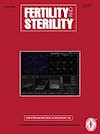 Paulus et al (2002) compared a group of 80 patients receiving acupuncture before and after embryo transfer with a control group of 80 patients not receiving any supportive therapy. 42.5% of the acupuncture group had a clinical pregnancy confirmed by an ultrasound examination at 6 weeks compared to 26.3% in the control group (click here for the full text article).
Paulus et al (2002) compared a group of 80 patients receiving acupuncture before and after embryo transfer with a control group of 80 patients not receiving any supportive therapy. 42.5% of the acupuncture group had a clinical pregnancy confirmed by an ultrasound examination at 6 weeks compared to 26.3% in the control group (click here for the full text article).
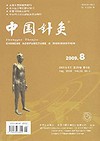 Zhang et al (2003) randomised 210 patients undergoing IVF or ICSI to one of 3 groups: acupuncture, placebo acupuncture, or control. The acupuncture was performed before and after embryo transfer and contraction frequency of the uterus and the pregnancy rate were observed. The contraction frequency before embryo transfer was not significantly different among the 3 groups, but was lower in the acupuncture group after embryo transfer. The pregnancy rate in the acupuncture group was significantly higher (44.3%) than that in the placebo acupuncture (27.1) and control groups (24.3%).
Zhang et al (2003) randomised 210 patients undergoing IVF or ICSI to one of 3 groups: acupuncture, placebo acupuncture, or control. The acupuncture was performed before and after embryo transfer and contraction frequency of the uterus and the pregnancy rate were observed. The contraction frequency before embryo transfer was not significantly different among the 3 groups, but was lower in the acupuncture group after embryo transfer. The pregnancy rate in the acupuncture group was significantly higher (44.3%) than that in the placebo acupuncture (27.1) and control groups (24.3%).
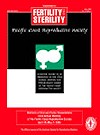 A small pilot trial involving 17 patients with a previous failed IVF cycle(s) were given either standard acupuncture or sham acupuncture involving a placebo needle (Quintero 2004). Patients in the standard acupuncture group were given significantly less gonadotropins and the clinical pregnancy rate was 70% (click here for the full text article).
A small pilot trial involving 17 patients with a previous failed IVF cycle(s) were given either standard acupuncture or sham acupuncture involving a placebo needle (Quintero 2004). Patients in the standard acupuncture group were given significantly less gonadotropins and the clinical pregnancy rate was 70% (click here for the full text article).
A retrospective study of IVF patients by Magarelli et al (2004) showed significant increases in pregnancy outcomes in patients receiving acupuncture, especially in those with a normal pulsatility index. The study also demonstrated that the use of acupuncture in patients with poor prognoses (elevated Peak FSH, longer history of infertility, poor sperm morphology) can achieve similar pregnancy rates to normal prognosis patients (click here for the full text article).
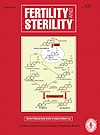 In a clinical trial by Westergaard (2006), patients were randomised to receive either acupuncture on the day of embryo transfer (ET), acupuncture on the day of ET plus again 2 days later, or no acupuncture at all. The patients receiving acupuncture just on the day of embryo transfer had significantly higher clinical and ongoing pregnancy rates than the other 2 groups (click here for the full text article).
In a clinical trial by Westergaard (2006), patients were randomised to receive either acupuncture on the day of embryo transfer (ET), acupuncture on the day of ET plus again 2 days later, or no acupuncture at all. The patients receiving acupuncture just on the day of embryo transfer had significantly higher clinical and ongoing pregnancy rates than the other 2 groups (click here for the full text article).
Smith et al (2006) used a placebo needle in their study of 228 patients having embryo transfer. Patients received either real acupuncture or the placebo on day 9 of stimulation and then again before and after ET. The acupuncture was found to be more effective but the results were not statistically significant with 31% clinically pregnant in the acupuncture group compared to 23% in the control (click here for the full text article).
Dieterle et al (2006) also used a placebo needle in their study of 225 women having IVF/ICSI. In the acupuncture group, the clinical pregnancy rate and ongoing pregnancy rate (33.6% and 28.4%, respectively) were significantly higher than in the group receiving the placebo needle acupuncture (15.6% and 13.8%) (click here for the full text article).
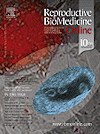 Andersen et al (2010) also compared acupuncture with acupuncture using a placebo needle in a study of 635 patients having embryo transfer and found no statistical difference in the outcomes (click here for the abstract).
Andersen et al (2010) also compared acupuncture with acupuncture using a placebo needle in a study of 635 patients having embryo transfer and found no statistical difference in the outcomes (click here for the abstract).
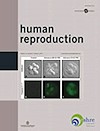 So et al (2009) found that placebo acupuncture resulted in a higher number of clinical pregnancies than true acupuncture, which suggests that placebo acupuncture isn't inert and perhaps unsuitable as a control method (click here for the full text article).
So et al (2009) found that placebo acupuncture resulted in a higher number of clinical pregnancies than true acupuncture, which suggests that placebo acupuncture isn't inert and perhaps unsuitable as a control method (click here for the full text article).
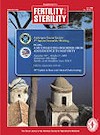 Benson (2006) compared two different acupuncture groups (needle and laser acupuncture) with sham laser acupuncture, relaxation, or no intervention on implantation and pregnancy rates in women undergoing IVF. Conception and implantation rates were highest with traditional needle acupuncture. IVF treatment outcomes did not differ between patients treated with laser or sham laser acupuncture. Needle acupuncture produced a clinically significant effect (greater than 10% increase in clinical pregnancy rate) compared with relaxation or no treatment (click here for the full text article).
Benson (2006) compared two different acupuncture groups (needle and laser acupuncture) with sham laser acupuncture, relaxation, or no intervention on implantation and pregnancy rates in women undergoing IVF. Conception and implantation rates were highest with traditional needle acupuncture. IVF treatment outcomes did not differ between patients treated with laser or sham laser acupuncture. Needle acupuncture produced a clinically significant effect (greater than 10% increase in clinical pregnancy rate) compared with relaxation or no treatment (click here for the full text article).
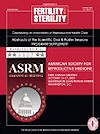 Craig et al (2008) found lower clinical pregnancy rates in the acupuncture group compared to a control group receiving no acupuncture in a study of 107 patients undergoing embryo transfer. The acupuncture points used and the timing of the treatments were similar to the trial by Paulus (2002) above. The two groups were also statistically similar in terms of the patient age, peak oestradiol levels, number of eggs retrieved, fertilisation method, fertilisation rate, number of embryos transferred, and the proportion with blastocysts transferred (click here for the full text article).
Craig et al (2008) found lower clinical pregnancy rates in the acupuncture group compared to a control group receiving no acupuncture in a study of 107 patients undergoing embryo transfer. The acupuncture points used and the timing of the treatments were similar to the trial by Paulus (2002) above. The two groups were also statistically similar in terms of the patient age, peak oestradiol levels, number of eggs retrieved, fertilisation method, fertilisation rate, number of embryos transferred, and the proportion with blastocysts transferred (click here for the full text article).
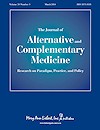 A retrospective review to evaluate the effects of the acupuncture protocol used by Craig (2008) in donor and non-donor IVF cycles found that acupuncture on the day of embryo transfer didn't lower live birth rates but in fact increased them in donor cycles (Hullender et al, 2015). 87% of the women who received donor egg embryos and had acupuncture had a baby compared with 66% in the donor group who didn’t have acupuncture (click here for the abstract).
A retrospective review to evaluate the effects of the acupuncture protocol used by Craig (2008) in donor and non-donor IVF cycles found that acupuncture on the day of embryo transfer didn't lower live birth rates but in fact increased them in donor cycles (Hullender et al, 2015). 87% of the women who received donor egg embryos and had acupuncture had a baby compared with 66% in the donor group who didn’t have acupuncture (click here for the abstract).
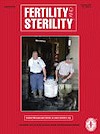 Domar et al (2006) also replicated the study by Paulus (2002) with 83 women having embryo transfer and again there was no statistical difference in pregnancy rates between a group receiving acupuncture and a control group (click here for the full text article).
Domar et al (2006) also replicated the study by Paulus (2002) with 83 women having embryo transfer and again there was no statistical difference in pregnancy rates between a group receiving acupuncture and a control group (click here for the full text article).
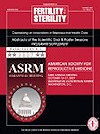 Teshima (2007) showed that acupuncture before and after embryo transfer resulted in a higher number of clinical pregnancies than the control group but the results weren't statistically significant (click here for the full text article).
Teshima (2007) showed that acupuncture before and after embryo transfer resulted in a higher number of clinical pregnancies than the control group but the results weren't statistically significant (click here for the full text article).
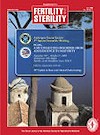 In a small study by Udoff (2007), patients in the treatment group received acupuncture before starting their stimulation drugs, the day before egg retrieval, and the day before and the day after embryo transfer. The control group received ‘sham’ acupuncture at non-acupuncture points. The group receiving acupuncture had an 80% chemical pregnancy rate compared to 11% in the control group. The clinical pregnancy and live birth rates were higher in the acupuncture group but not statistically significant (click here for the full text article).
In a small study by Udoff (2007), patients in the treatment group received acupuncture before starting their stimulation drugs, the day before egg retrieval, and the day before and the day after embryo transfer. The control group received ‘sham’ acupuncture at non-acupuncture points. The group receiving acupuncture had an 80% chemical pregnancy rate compared to 11% in the control group. The clinical pregnancy and live birth rates were higher in the acupuncture group but not statistically significant (click here for the full text article).
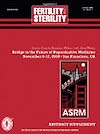 Youran et al (2008) found that patients under 35 had significantly higher pregnancy and clinical pregnancy rates when they had acupuncture before and after embryo transfer. Across the age groups, the acupuncture group had higher clinical pregnancy rates and lower loss rates (click here for the full text article).
Youran et al (2008) found that patients under 35 had significantly higher pregnancy and clinical pregnancy rates when they had acupuncture before and after embryo transfer. Across the age groups, the acupuncture group had higher clinical pregnancy rates and lower loss rates (click here for the full text article).
Fratterelli (2008) reported an increase in implantation rates with the use of laser acupuncture but the overall pregnancy rates for laser or needle acupuncture were not significantly different to control groups. The control groups in this trial had a high clinical pregnancy rate (over 50%) (click here for the abstract).
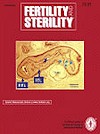 In a trial of 150 patients waiting to undergo embryo transfer (Domar et al, 2009), the subjects were randomised to either receive acupuncture before and after embryo transfer as initially described by Paulus (2002) or to lay quietly. All subjects then completed a questionnaire to assess their anxiety and optimism. Clinical pregnancy rates were similar in both groups but the acupuncture group reported feeling less anxious and more optimistic (click here for the full text article).
In a trial of 150 patients waiting to undergo embryo transfer (Domar et al, 2009), the subjects were randomised to either receive acupuncture before and after embryo transfer as initially described by Paulus (2002) or to lay quietly. All subjects then completed a questionnaire to assess their anxiety and optimism. Clinical pregnancy rates were similar in both groups but the acupuncture group reported feeling less anxious and more optimistic (click here for the full text article).
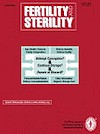 Magarelli (2009) examined changes in cortisol and prolactin levels in patients undergoing IVF and embryo transfer. Acupuncture appeared to show a beneficial regulation of both these levels during the medication phase of the IVF treatment with a trend toward more normal fertile cycle dynamics (click here for the full text article).
Magarelli (2009) examined changes in cortisol and prolactin levels in patients undergoing IVF and embryo transfer. Acupuncture appeared to show a beneficial regulation of both these levels during the medication phase of the IVF treatment with a trend toward more normal fertile cycle dynamics (click here for the full text article).
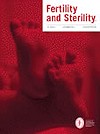 Zhang (2011) found that using transcutaneous electrical acupoint stimulation before and after embryo transfer significantly improved clinical pregnancy rates, embryo implantation rates, and live birth rates (click here for the full text article).
Zhang (2011) found that using transcutaneous electrical acupoint stimulation before and after embryo transfer significantly improved clinical pregnancy rates, embryo implantation rates, and live birth rates (click here for the full text article).
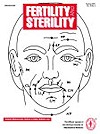 160 patients below 38 years of age and undergoing IVF/ICSI were randomised to receive either acupuncture or ‘sham’ acupuncture (Moy 2011). The overall clinical pregnancy rate was 51.25% but there was no statistical difference between the 2 groups. Perhaps this shows that 'sham' acupuncture is an ineffective control method and is not inert (click here for the abstract).
160 patients below 38 years of age and undergoing IVF/ICSI were randomised to receive either acupuncture or ‘sham’ acupuncture (Moy 2011). The overall clinical pregnancy rate was 51.25% but there was no statistical difference between the 2 groups. Perhaps this shows that 'sham' acupuncture is an ineffective control method and is not inert (click here for the abstract).
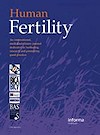 Dalton-Brewer et al (2010) performed acupuncture using the Paulus protocol on 71 patients and found positive pregnancy rates (44.6%) compared with the non-acupuncture historic control group. When they analysed outcomes amongst the different age groups they discovered that acupuncture was particularly effective in women in the 35 - 39 and the over 40 age group.
Dalton-Brewer et al (2010) performed acupuncture using the Paulus protocol on 71 patients and found positive pregnancy rates (44.6%) compared with the non-acupuncture historic control group. When they analysed outcomes amongst the different age groups they discovered that acupuncture was particularly effective in women in the 35 - 39 and the over 40 age group.
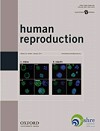 A prospective, randomised study by Arnoldi et al (2010) examined the effects of acupuncture in patients undergoing IVF but with a reduced ovarian reserve. Patients were included who had had at least two previous poor responses to ovarian stimulation and/or recurrent implantation failure, ovarian and/or pelvic endometriosis, and raised early follicular phase FSH (> 10 IU/l). The number of pregnancies was 22 in the acupuncture group and 10 in the control group. Pregnancy rate per starting cycle was 22% and 10% respectively. Pregnancy rate per embryo transfer was 23% and 12% respectively. The implantation rate was 13% and 8% respectively.
A prospective, randomised study by Arnoldi et al (2010) examined the effects of acupuncture in patients undergoing IVF but with a reduced ovarian reserve. Patients were included who had had at least two previous poor responses to ovarian stimulation and/or recurrent implantation failure, ovarian and/or pelvic endometriosis, and raised early follicular phase FSH (> 10 IU/l). The number of pregnancies was 22 in the acupuncture group and 10 in the control group. Pregnancy rate per starting cycle was 22% and 10% respectively. Pregnancy rate per embryo transfer was 23% and 12% respectively. The implantation rate was 13% and 8% respectively.
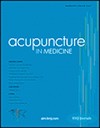 Madaschi et al (2010) randomised 406 patients having ICSI treatment to receive either acupuncture or no other treatment. Acupuncture wasn’t shown to improve clinical outcomes unless the cause of the infertility was exclusively tubal-uterine or idiopathic in origin, then a positive influence was noted. Also, where acupuncture was performed there was a trend towards an increase in implantation rates (click here for the full text article).
Madaschi et al (2010) randomised 406 patients having ICSI treatment to receive either acupuncture or no other treatment. Acupuncture wasn’t shown to improve clinical outcomes unless the cause of the infertility was exclusively tubal-uterine or idiopathic in origin, then a positive influence was noted. Also, where acupuncture was performed there was a trend towards an increase in implantation rates (click here for the full text article).
di Villahermosa et al (2013) looked at the influence of acupuncture on the outcome of IVF in patients who had already had 2 failed attempts. Acupuncture was performed on the first and seventh day of ovarian stimulation, on the day before egg collection and on the day after embryo transfer and was found to give a statistically higher clinical pregnancy rate than the control or sham group (35.7% vs 7.1% vs 10.7%) (click here for the full text article).
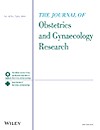 240 women with a low ovarian reserve and undergoing IVF treatment were divided into either a group that received electrostimulation to acupuncture points or into a control group (Zheng et al 2015). The study showed that the 56 women who received the electrostimulation to acupuncture points had an increase in their antral follicle count and anti-Müllerian hormone (AMH) levels whereas the oestradiol, FSH, and FSH:LH ratios were significantly reduced. After treatment, the number of eggs retrieved, the average number of embryos transferred, and the clinical pregnancy rates were significantly higher than the other groups. This is an encouraging finding as it is often thought that not much can be done to improve the chances of IVF patients with a low ovarian reserve (click here for the abstract).
240 women with a low ovarian reserve and undergoing IVF treatment were divided into either a group that received electrostimulation to acupuncture points or into a control group (Zheng et al 2015). The study showed that the 56 women who received the electrostimulation to acupuncture points had an increase in their antral follicle count and anti-Müllerian hormone (AMH) levels whereas the oestradiol, FSH, and FSH:LH ratios were significantly reduced. After treatment, the number of eggs retrieved, the average number of embryos transferred, and the clinical pregnancy rates were significantly higher than the other groups. This is an encouraging finding as it is often thought that not much can be done to improve the chances of IVF patients with a low ovarian reserve (click here for the abstract).
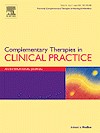 Balk et al (2010) wanted to determine the effect of acupuncture on stress levels on the day of embryo transfer and to see if this correlated with pregnancy rates. 64.7% of the patients receiving acupuncture achieved a pregnancy compared to 42.5% not receiving any and the patients receiving acupuncture had lower stress scores both pre and post-ET compared to those who did not (click here for the abstract).
Balk et al (2010) wanted to determine the effect of acupuncture on stress levels on the day of embryo transfer and to see if this correlated with pregnancy rates. 64.7% of the patients receiving acupuncture achieved a pregnancy compared to 42.5% not receiving any and the patients receiving acupuncture had lower stress scores both pre and post-ET compared to those who did not (click here for the abstract).
Systematic Reviews and Meta Analyses
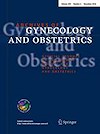 A systematic review and meta-analysis by Qian et al (2016) collected data from 30 trials, which included more than 6300 women undergoing IVF. It found that acupuncture improves clinical pregnancy rates especially when the acupuncture is performed during the stimulation phase when the follicles are developing. Studies carried out in Asia where electroacupuncture was used showed even better outcomes that non-Asian studies where regular acupuncture was performed.
A systematic review and meta-analysis by Qian et al (2016) collected data from 30 trials, which included more than 6300 women undergoing IVF. It found that acupuncture improves clinical pregnancy rates especially when the acupuncture is performed during the stimulation phase when the follicles are developing. Studies carried out in Asia where electroacupuncture was used showed even better outcomes that non-Asian studies where regular acupuncture was performed.
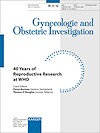 Shen et al (2015) carried out a review of 21 randomised controlled trials that included over 5000 patients. They concluded that acupuncture performed at the time of embryo transfer didn’t lead to improved outcomes but acupuncture administered during the stimulation phase of an IVF cycle and at embryo transfer and also during the implantation phase and at embryo transfer showed statistically significant improved pregnancy rates (click here for the abstract).
Shen et al (2015) carried out a review of 21 randomised controlled trials that included over 5000 patients. They concluded that acupuncture performed at the time of embryo transfer didn’t lead to improved outcomes but acupuncture administered during the stimulation phase of an IVF cycle and at embryo transfer and also during the implantation phase and at embryo transfer showed statistically significant improved pregnancy rates (click here for the abstract).
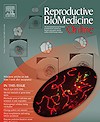 Hullender Rubin at al (2015) analysed the outcomes of 1231 IVF cycles and found that women who used Chinese Medicine (acupuncture with or without Chinese herbal medicine, dietary advice, lifestyle recommendations) had a higher live birth rate than those just doing IVF alone. The proportion of live births was significantly higher in the Chinese Medicine group (61.3%) compared with either the usual IVF care (48.2%) or acupuncture only on day of embryo transfer (50.8%) (click here for the abstract).
Hullender Rubin at al (2015) analysed the outcomes of 1231 IVF cycles and found that women who used Chinese Medicine (acupuncture with or without Chinese herbal medicine, dietary advice, lifestyle recommendations) had a higher live birth rate than those just doing IVF alone. The proportion of live births was significantly higher in the Chinese Medicine group (61.3%) compared with either the usual IVF care (48.2%) or acupuncture only on day of embryo transfer (50.8%) (click here for the abstract).
The References
Paulus W et al. Influence of acupuncture on the pregnancy rate in patients who undergo assisted reproduction therapy. Fertil Steril 2002; 77:721-724
Zhang M et al. Effect of acupuncture on the pregnancy rate in embryo transfer and mechanisms: A randomized and controlled study. Chin Acup and Moxibustion 2003; (1):3 - 5
Quintero R et al. A randomized, controlled, double-blind, cross-over study evaluating acupuncture as an adjunct to IVF. Fertil Steril 2004; 81:3:S11-12
Magarelli et al. Acupuncture & IVF poor responders: a cure? Fertil Steril 2004; 81:3:S20
Westergaard L et al. Acupuncture on the day of embryo transfer significantly improves the reproductive outcome in infertile women: a prospective, randomized trial. Fertil Steril 2006; 85:1341-1346
Smith C et al. Influence of acupuncture stimulation on pregnancy rates for women undergoing embryo transfer. Fertil Steril 2006; 85:1352-1358
Dieterle S et al. Effect of acupuncture on the outcome of in vitro fertilization and intracytoplasmic sperm injection: a randomized, prospective, controlled clinical study. Fertil Steril 2006; 85:1347-1351
Andersen D, Løssl K, Nyboe Andersen A, Fürbringer J, Bach H, Simonsen J, Larsen EC. Acupuncture on the day of embryo transfer: a randomized controlled trial of 635 patients. Reprod Biomed Online 2010 Sep; 21(3):366-72
So et al. A randomized double blind comparison of real and placebo acupuncture in IVF treatment. Hum Reprod. 2009 Feb; 24(2):341-8
Benson M. R. et al. Impact of acupuncture before and after embryo transfer on the outcome of in vitro fertilization cycles: A prospective single blind randomized study. Fertil Steril 2006 ;86:3:S135
Craig L. B et al. Acupuncture lowers pregnancy rates when performed before and after embryo transfer. Fertil Steril 2007; 88:1:S40
Hullender R et al. Acupuncture and in vitro fertilization: a retrospective chart review. J Altern Complement Med 2013; 19(7):637-43
Domar A et al. The impact of acupuncture on IVF outcome. Fertil Steril 2006; 86:2:S378-379
Teshima D.R.K et al. The effect of acupuncture in assisted reproduction techniques. Fertil Steril 2007; 88:1:S330
Udoff L. C. et al. The effect of acupuncture on outcomes in in-vitro fertilization (IVF). Fertil Steril 2007; 86:3:S145
Youran et al. Acupuncture performed before and after embryo transfer improves pregnancy rates. Fertil Steril 2008; 90:1:S240
Fratterelli et al. Laser acupuncture before and after embryo transfer improves ART delivery rates: results of a prospective randomized double-blinded placebo controlled five-armed trial involving 1000 patients. Fertil Steril 2008; 90:1:S105
Domar A et al. The impact of acupuncture on in vitro fertilization outcome. Fertil Steril 2009; 91:3:723-6
Magarelli, PC, Cridennda D, Cohen, M. Changes in serum cortisol and prolactin associated with acupuncture during controlled ovarian hyperstimulation in women undergoing in vitro fertilization-embryo transfer treatment. Fertil Steril. 2009; 92(6):1870-9
Zhang R et al. Increase of success rate for women undergoing embryo transfer by transcutaneous electrical acupoint stimulation: a prospective randomized placebo-controlled study. Fertil Steril 2011; 96:4:912-916
Moy I et al. Randomized Controlled Trial: Effects of Acupuncture on Pregnancy Rates in Women Undergoing In Vitro Fertilization. Fertil Steril 2011; 95:583-587
Dalton-Brewer N et al. Use of Acupuncture before and after embryo transfer. Hum Fert 2010; 12:4:212 - 255
Arnoldi, M et al. The role of acupuncture in patients at unfavourable reproductive prognosis in IVF: a prospective randomised study. Hum Reprod 2010; 25(Suppl. 1):i257
Madaschi C, Braga DPAF, Figueira RDCS, et al. Effect of acupuncture on assisted reproduction treatment outcomes. Acupuncture in Medicine 2010; 28:180-184.
di Villahermosa DIM, dos Santos LG, Nogueira MB, et al. Influence of acupuncture on the outcomes of in vitro fertilisation when embryo implantation has failed: a prospective randomised controlled clinical trial. Acupuncture in Medicine 2013; 31:157-161.
Zheng Y et al. Effects of transcutaneous electrical acupoint stimulation on ovarian reserve of patients with diminished ovarian reserve in in vitro fertilization and embryo transfer cycles. J Obstet Gynaecol Res. 2015 Dec; 41(12):1905-11
Balk, et al. The relationship between perceived stress, acupuncture, and pregnancy rates among IVF patients: A pilot study. Complement Ther Clin Pract. 2010 Aug; 16(3): 154–157.
Qian Y et al. Therapeutic effect of acupuncture on the outcomes of in vitro fertilization: a systematic review and meta-analysis. Arch Gynecol Obstet 2016 Dec:1-16
Shen C, Wu M, Shu D, Zhao X, Gao Y. The role of acupuncture in in vitro fertilization: a systematic review and meta-analysis. Gynecol Obstet Invest. 2015; 79(1):1-12
Hullender Rubin L et al. Impact of whole systems traditional Chinese medicine on in-vitro fertilization outcomes. Reprod Biomed Online. 2015; 30: 602-612

